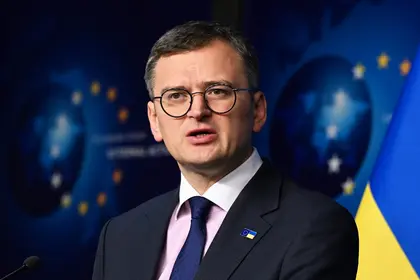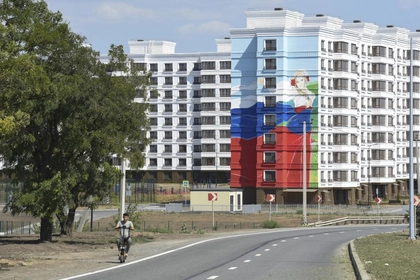Ukraine's Foreign Affairs Minister Dmytro Kuleba thanked German Chancellor Olaf Scholz for coming up with the offer to Hungarian Prime Minister Viktor Orbán to leave the hall during the vote on Ukraine’s accession talks, which allowed the decision to pass.
That’s according to Kuleba’s interview with Bild’s Paul Ronzheimer.
JOIN US ON TELEGRAM
Follow our coverage of the war on the @Kyivpost_official.
"What German Chancellor Olaf Scholz did at the summit to remove Hungary's veto threat will go down in history as an act of German leadership in Europe’s interests," Kuleba said.
He is convinced that the chancellor won a lot at this meeting, in particular, sincere and well-deserved admiration in the hearts of Ukrainians. At the outset of the war, the German leadership was criticized for the reluctance to quickly supply weapons, and later – heavy equipment.
Currently, the situation is changing, and against the background of great fears that the USA may distance itself from Ukraine, Kyiv relies on Berlin.
Kuleba recalled that last May, during the campaign run in Germany for Ukraine's EU candidate status, his calls for Berlin to take the lead in the process remained largely unheeded. Experts and politicians in the German capital said that Germany does not seek to become a leader in this regard.
"I am glad that German political decisions have changed since then. I can only hope that this also marks a broader and irreversible shift in Germany's approach to leading efforts to resolve the most complex issues," the Ukrainian top diplomat said.

Ukraine’s Usyk Beats Fury in Heavyweight Championship Rematch
This also applies to security assistance, where criticism of Germany has also become weaker, in particular, thanks to the transfer of air defense capabilities. However, Germany is unlikely to deliver the much-sought Taurus long-range missiles, Bild notes.
"We have many reasons to be grateful to Germany, from military aid to financial support, but political clarity on Ukraine's EU membership is probably the best Christmas gift from Berlin. Gray zones are no longer possible in Europe. Either paint the map of Europe in EU colors to guarantee security and prosperity for all Europeans, or Putin will paint it with blood and bring more suffering, instability, and destruction. I am glad that this week we all became safer and more confident," Kuleba concluded.
It should be recalled that this week, the European Council supported the start of negotiations on Ukraine's accession to the European Union by 26 votes, despite fears that Hungary would block the move. The fact that Prime Minister Orbán did not participate in the vote was due to Chancellor Scholz, who offered that the head of Hungarian government have a coffee break during the decisive vote. In general, Scholz currently acts as almost the biggest lobbyist for Ukraine's progress on the path to the EU, while simultaneously proposing reform for the bloc itself.
You can also highlight the text and press Ctrl + Enter






